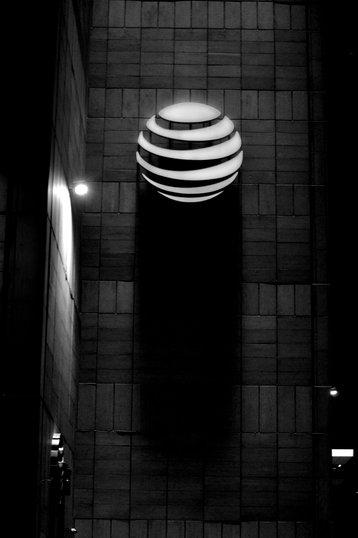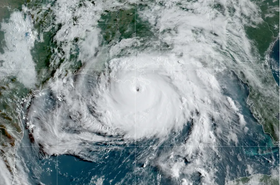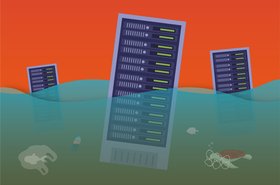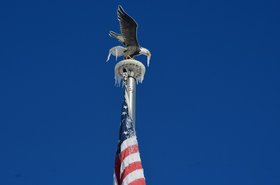Hurricane Ida has caused widespread mobile and fiber disruptions across Louisiana, taking out much of AT&T and T-Mobile's services.
At peak, AT&T said that 60 percent of its Louisiana network was working, while T-Mobile said that around 70 percent of its network was operation in Alabama and Louisiana, but did not disclose the specific impact on the latter state.
AT&T said that it has now restored most services, and is "operating at more than 94 percent of normal." The company added: "We now have a total of 23 on-air mobile cell site solutions supporting customers and first responders."
However, during the worst of the storm, the AT&T-supported 911 call center crashed. “The calls never got to the building,” Tyrell Morris, the district’s executive director, told The Washington Post. “Our technology is antiquated."
AT&T said: "Despite commercial power outages, all of our wireline centers remain in service as we continue to place and refuel generators."
Similarly, T-Mobile said that "some sites that were previously impacted in Louisiana, Mississippi, and Alabama were restored overnight as our crews have worked tirelessly to deploy large numbers of generators and rapidly power them up again."
Verizon did not disclose the peak impact of the human-induced storm on its network, but in its last update said that "90 percent of Verizon cell sites that were in the path of the storm are in service."
The company added: "Despite flooding, downed power lines and debris blocking access to many locations, our teams have completed over 100 site surveys, some completed with airboats. As site surveys are completed, our engineers are identifying power outages, broken fiber lines (which carry data from the cell site to the switch and core locations of the network,) and numerous antennas that are broken or misdirected as a result of hurricane-force winds. Engineers are activating recovery plans to address each of these issues."
On 30 August, the FCC's Bureau of Public Safety and Homeland Security said that four cell towers were offline in Alabama, 441 in Louisianan, and 93 in Mississippi. Cable and wireline companies told the agency that that amounted to 478, 338,115, and 16,106 subscribers without service in each state, respectively.
Following 2005's Hurricane Katrina, the FCC approved new rules that require cell towers have at least eight hours of battery backup power. But, as Vice notes, telecoms companies successfully lobbied against the legislation.
Data centers in Louisiana have had varying fortunes amid the extreme weather. This week saw the data center on the third floor of the New Orleans City Hall caught fire. The cause of the fire is not known but occurred while the city hall was using its diesel generators amid power outages.
Datacenter Frontier also reports commercial data centers operated by Venyu and EdgeConneX remained dry and online throughout the storm, both operating on generators for several days while waiting for grid power to return.




